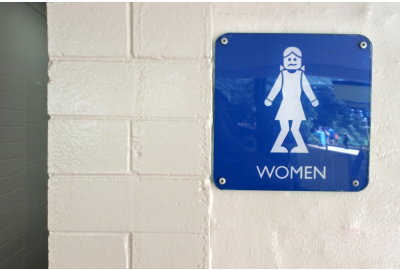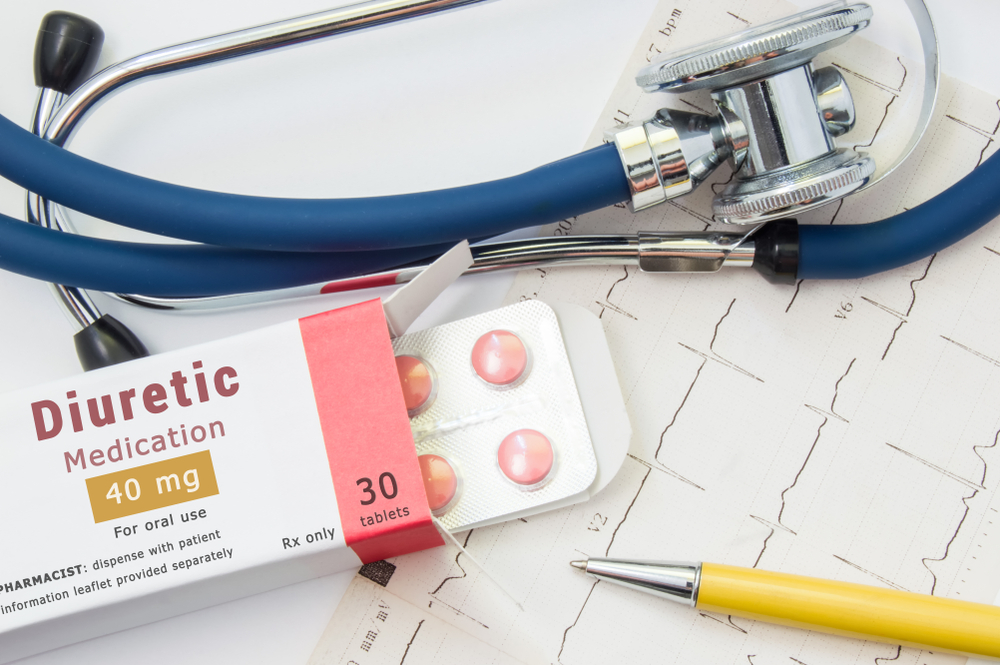
Why Do I Pee So Much?
Frequent urination can be a major drag, not only because it causes annoying interruptions during daily activities—and makes you a less-than-ideal road trip partner—but also because it’s often associated with pain, burning, and discomfort. You may accept more frequent visits to the ladies room as an inevitable reality of aging, but there could be more to the story. Figuring out why you’re experiencing an increase in urination is the first step towards seeking treatment. Here are some common reasons you might be peeing more frequently.

-
You’re Going Through Menopause—If you’re around menopausal age, there is a good chance your overactive bladder is associated with this new phase of life. During menopause, the body’s estrogen levels dip, causing many of its most common signs—hot flashes, weight gain and, yes, more frequent urination. That’s because the body uses estrogen to build strength and flexibility of the muscles and tissues in the pelvic floor, and when it’s gone, these muscles and tissues weaken, leading to more frequent urges and incontinence.
-
You Have an Underlying Condition—It’s important to see your physician if you can’t come to a sensible conclusion as to why you’ve been urinating more frequently than usual. He or she will help you rule out more serious underlying conditions that may cause overactive bladder, including:
-
Neurological disorders, including Parkinson’s, multiple sclerosis, or stroke
-
Nerve damage caused by surgery or injury
-
Urinary tract infections caused by bacteria
-
Diabetes, which causes nerve damage in the bladder and can increase sugar in urine, causing you to pee more
-
Tumors, bladder stones, kidney stones, or other abnormalities
-
Painful bladder syndrome, a condition where the bladder tissue gets inflamed, swollen, and sensitive
-
Pregnancy, which causes bladder pressure and an increase in hormones that make you have to pee more often
-
Vaginitis, which causes an increase in urination with pain and burning
-
Enlarged prostate gland (affects men only)
-
You’re Drinking Lots of Fluids—Let’s not complicate things! Perhaps you’re drinking too much fluid throughout the day, causing the need to urinate at inconvenient intervals. This is especially likely if you tend to drink lots of diuretics—any substance that helps rid the body of sodium and, in turn, water—such as coffee or alcohol. Be sure to pay attention to how much you’re drinking to draw parallels and decide if the condition may be caused by something more.
-
You Have Weak Pelvic Floor Muscles—Overactive bladder can happen when your pelvic floor muscles become weak for a variety of reasons, including pregnancy, childbirth, and menopause. When these muscles weaken and stretch, they fail to properly support the bladder and can contribute to excessive urination and urinary incontinence. Regularly practicing pelvic floor exercises, including doing Kegels, can help strengthen these muscles so you can better control the bladder. If you’re new to these exercises, using Kegel balls can help.
-
You’re Overweight—You already know that being overweight or obese has a major impact on the health of your heart and other vital organs, but did you know it can also impact the bladder? Carrying excess weight can put pressure and stress on the bladder, which can make you feel like you have to go to the bathroom when your bladder is not yet full.
-
Your Medication Is Causing It—Take a good, hard look at the meds you take daily or on occasion to see if they may be causing bladder issues. Diuretic pills—which are often used to treat high blood pressure and fluid retention—increase urine production and cause more frequent urination. Other medications, such as muscle relaxers and narcotics, can cause sedation or drowsiness that causes the bladder to relax and retain more urine than usual. If you believe your medicine is causing you to pee more often, talk to your doctor about finding an alternative.

-
You Suffer from Digestive Issues—Did you know that the bladder and bowel are closely related, and when one is dysfunctional, the other is more likely to be dysfunctional as well? Constipation is one reason why it might feel like you have to pee all the time. A full bowel can put pressure on the bladder, creating that urgent feeling that so often sends you to the bathroom. Chronically full bowels can also prevent the bladder from expanding, which means more frequent trips to the loo.
There are many reasons why you might experience overactive bladder, so it’s important to avoid making assumptions about the cause. At Sofia & Grace, we’re here to help you find the right solutions while managing overactive bladder and urinary incontinence. Shop best-selling products by Always Discreet, Poise, Depend, TENA, and more and use our library of resources for expert advice and support.